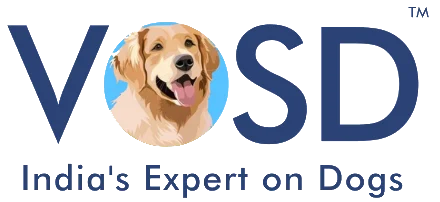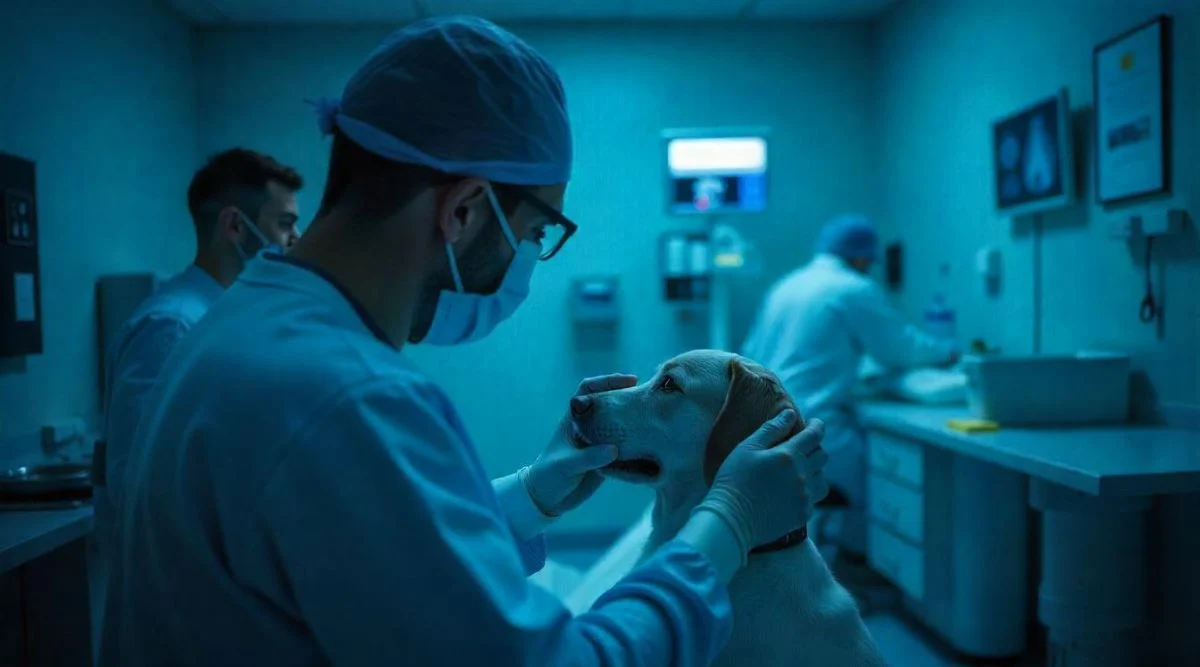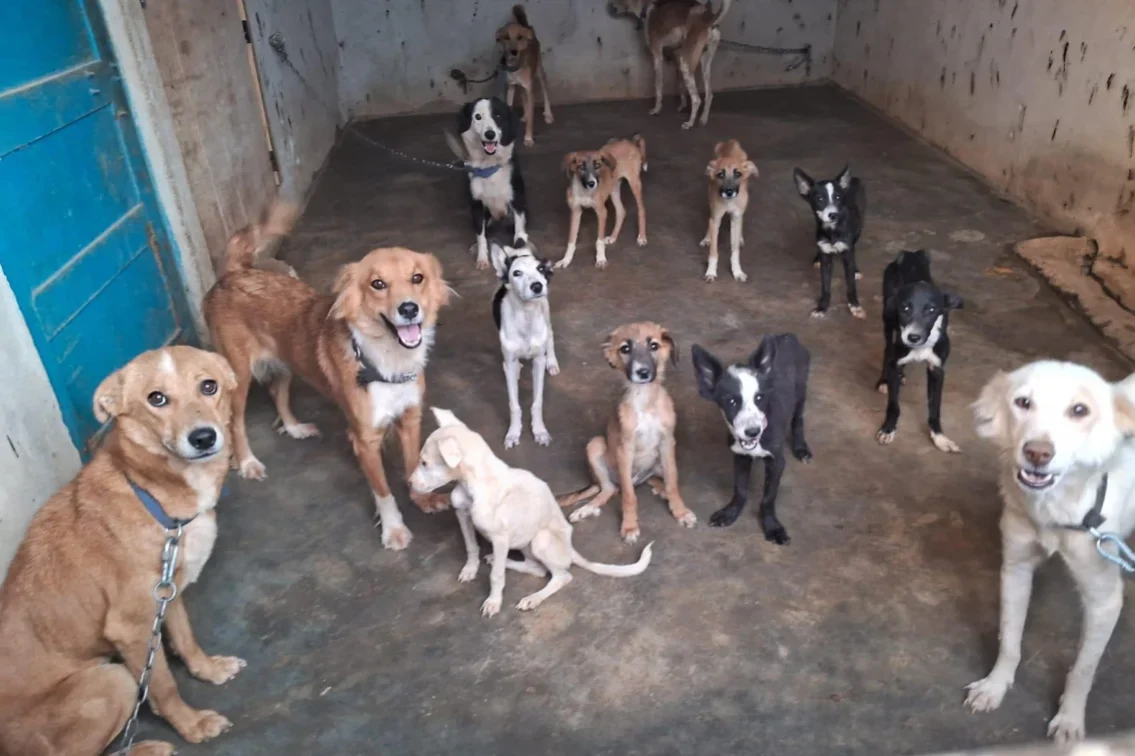A dog’s nervous system includes the brain, the spinal cord, nerves and the muscles. The neuromuscular system controls all the movements of the muscles by sending signals to the brain. While the brain may be the control centre of muscle activities, it cannot function independently of the signals from the nerves. The messages are received from the brain to the spinal cord and onto the peripheral nerve to control the muscle activity.
When the neuromuscular system is out of order and not functioning as it should, the muscles become weak, and this can lead to muscular atrophy. In some cases, this disorder can be degenerative and temporary. In others, it can become chronic. If the neuromuscular system is only mildly affected, your dog can still enjoy a full life as the impact is not consistent. However, if the condition is severe, your dog will be paralysed and in need of more significant support.
Nerve and muscle disorder occurs because of abnormalities in the nervous system and the relationship between the nerves and muscle movements.
A nerve/ muscle disorder can be congenital or acquired. If the disorder is congenital, you will see signs of it within the first six to eight weeks. If the condition is an acquired one, you will see signs of the disorder when your dog is either one to four years old or much later when your dog is between nine and thirteen years of age.
Causes of nerve/ muscle disorder in dogs
- Nerve diseases
- Neuromuscular junction diseases
- Myopathy
- Infectious diseases
- Inflammation of the nerves
- Toxins
- Genetics
Symptoms of nerve/ muscle disorder in dogs
There are three categories of nerve/ muscle disorder in dogs. They include diseases of the peripheral nerves, neuromuscular junction, and muscles. There are obvious symptoms that are common in all three categories. If your dog has acquired a nerve/ muscle disorder, you will find that it has affected the oesophagus’ muscles, the muscles in the throat, and in the area around the eyes. Your dog may even show a mass in the front central area of the chest. Other symptoms include:
Physical symptoms:
- Exercise-related weakness leading to progressive weakness
- Voice changes
- Sleeps with eyes open
- Muscle weakness
- Muscle degeneration
- Inability to walk, run, or even stand
- Difficulties in swallowing, drooling excessively and repeatedly trying to swallow
- Regurgitation
- Depression
- Lethargy
Nervous system disorder symptoms:
- Lack of blink reflex or a gradual decrease of the blink reflex
- Lacking gag reflex
- Spinal reflex may appear normal but may tire quickly.
Diagnosis of nerve/ muscle disorder in dogs
You will need to take the complete medical history of your dog, and the vet will subject your dog to a physical examination along with neurological tests. There are similar symptoms resulting from other diseases such as tick fever. The vet will run tests so that other conditions may be ruled out.
Your dog’s vet will order a blood profile to study the complete blood count’s chemical profile. Your dog will also undergo a urinalysis. Other tests will be conducted to study the thyroid function. A chest x-ray may be required to examine the oesophagus and aspiration pneumonia.
If needed, an ultrasound will be conducted to look for a mass in the chest area. It will require a biopsy to diagnose if the mass is a cancerous growth.
The vet may need to order a Tensilon test and a spinal tap to zero in on a neurological disorder. Other tests will be ordered to study a degenerative condition or to check for inflamed nerves and muscles. An electromyogram test with an electric stimulation to a particular nerve or muscle may be prescribed under general anaesthesia.
Treatment of nerve/ muscle disorder in dogs
Treatment of a nerve or muscle disorder will vary depending on the specific cause and the severity of the condition. Your dog may need to be hospitalised for the duration of the treatment. Feeding will need to be through a tube to maintain the nutritional balance, including a high-calorie diet and frequent feeding.
Spinal cord disorder: If your dog is suffering from a spinal cord disorder, surgery may be the best option.
Myasthenia: In case your dog is affected by myasthenia, medication will be prescribed to renew the strength in muscles.
Polymyositis: This is a common disorder in dogs. Your dog’s vet may prescribe corticosteroid therapy.
Toxicity: If toxins need to be removed, your dog’s vet will order toxic neuropathy.
Aspiration pneumonia: If your dog is suffering from aspiration pneumonia, your dog will need to be placed in intensive care in the hospital. Oxygen therapy, antibiotics, IV fluids and supportive care will be part of the treatment.
Recovery from nerve/ muscle disorder in dogs
Recovery will depend on the type of nerve/ muscle disorder, as well as the severity of the condition. Many of the disorders can be treated, and the prognosis is favourable with continued and ongoing therapy and support. However, if the nerve/ muscle disorder is caused by cancer, myopathy or an inherited neuropathy, the prognosis is poor.
Being proactive will always be helpful. If the disorder is degenerative, your dog will enjoy a good quality of life until such time that the condition begins to deteriorate and your dog’s health fails.
You would need to keep an eye out for the return of muscle strength. Your dog must be taken to the vet regularly for check-ups. Your dog’s vet will order chest x-rays every few weeks to look at the state of the oesophagus. The chest x-rays may be followed up with blood tests to monitor the levels of your dog’s antibodies.
Disclaimer:
The information contained in VOSD Vet Advice™ is not intended nor implied to be a substitute for professional medical action which is provided by your vet. You assume full responsibility for how you choose to use this information. For any emergency situation related to a dog’s health, please visit the nearest veterinary clinic.





